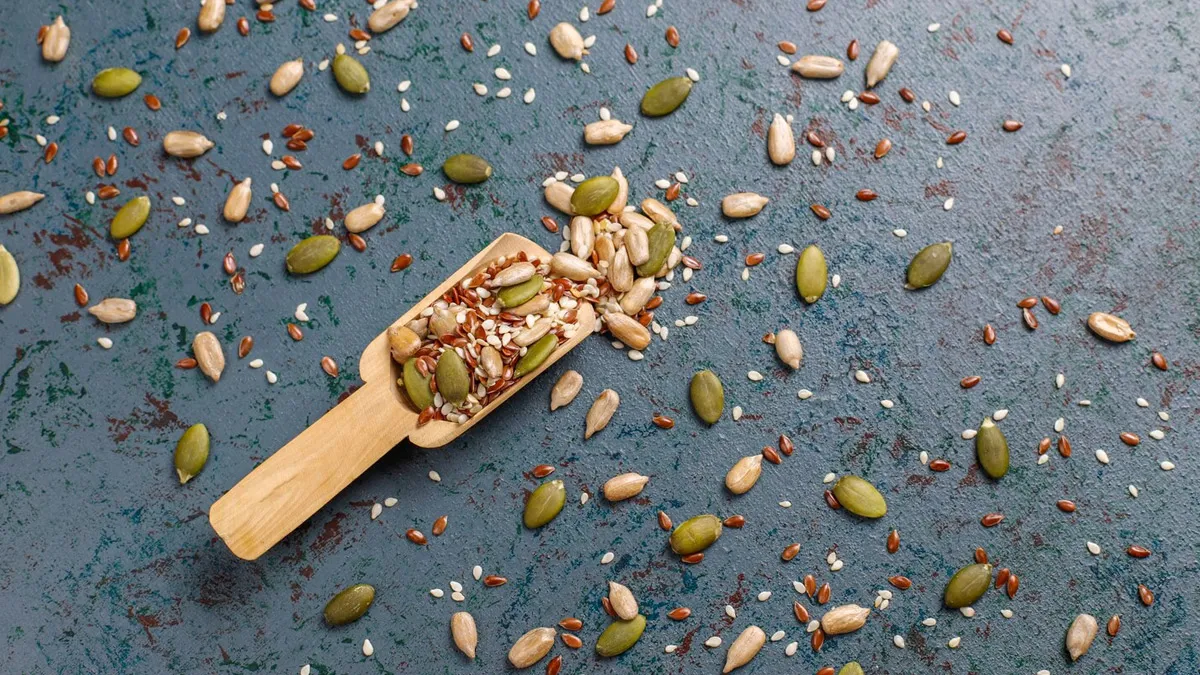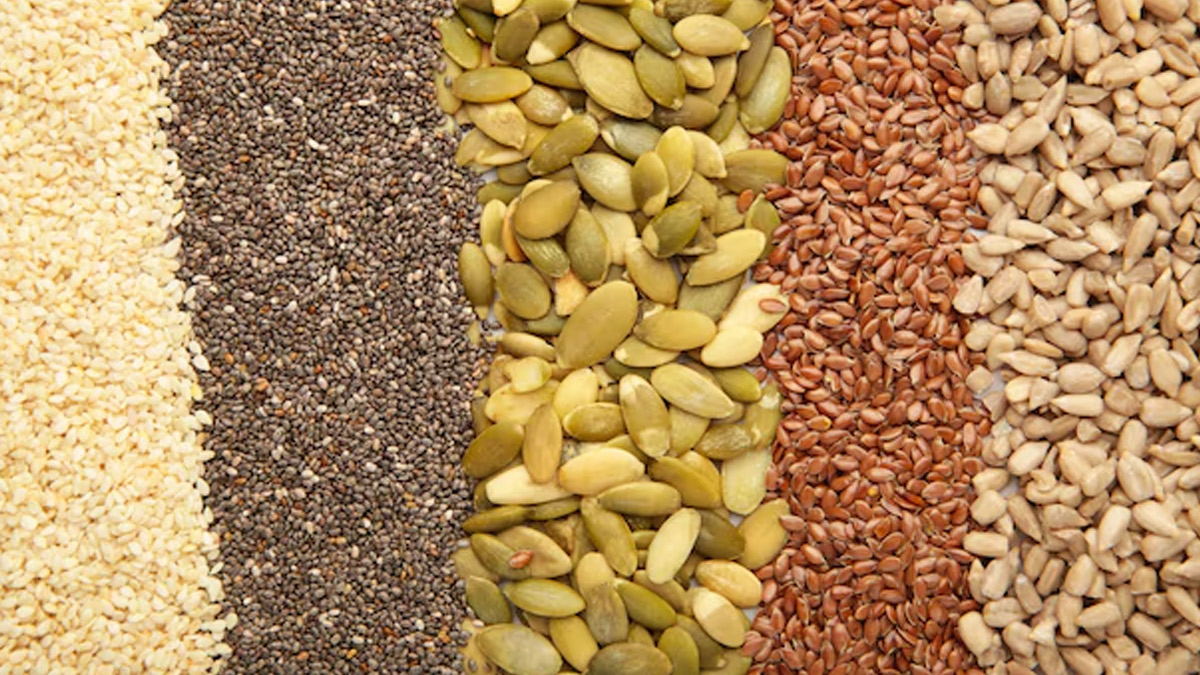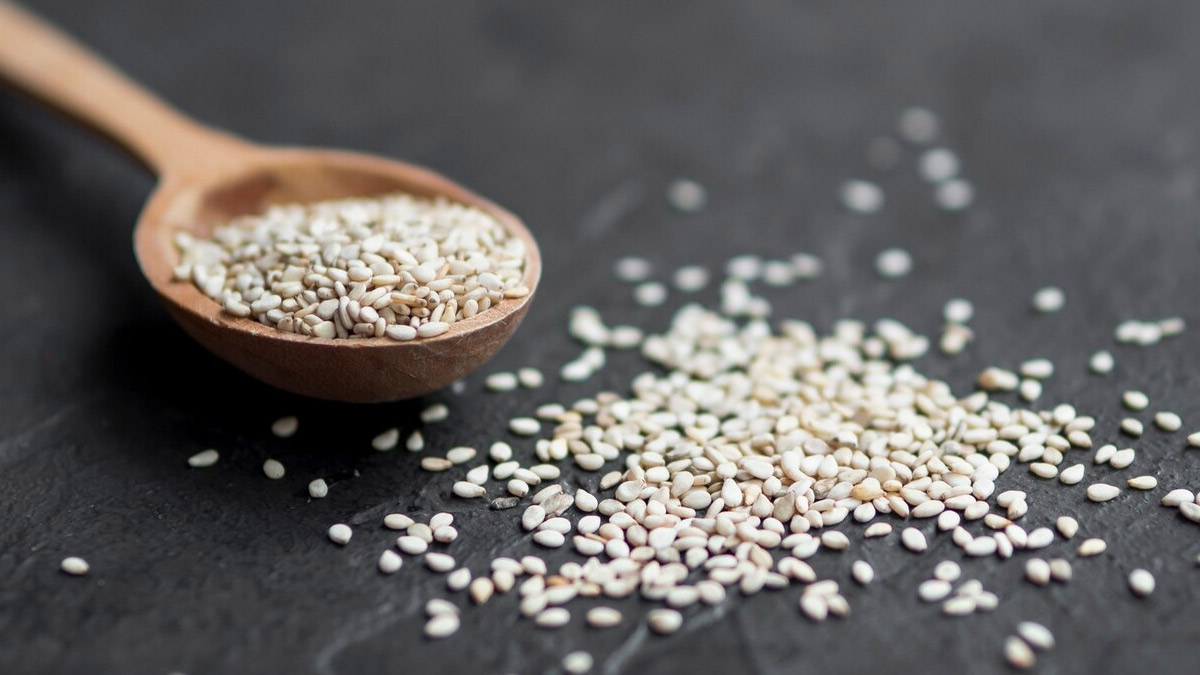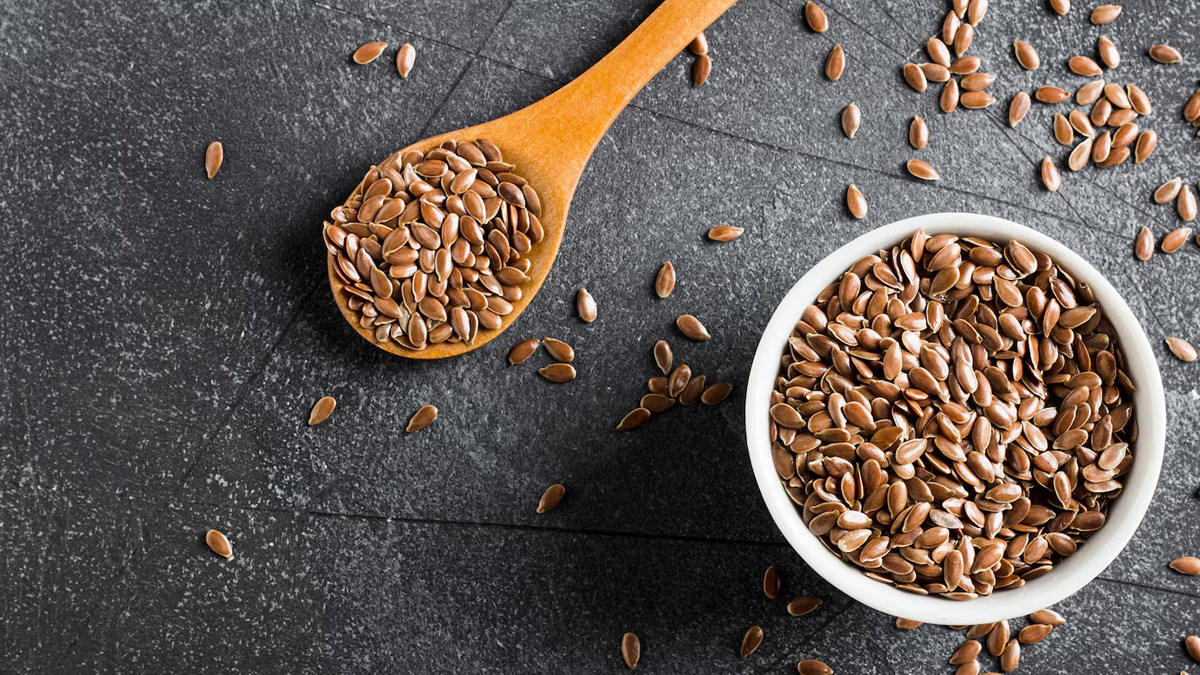
Seeds may be tiny, but they are a nutritional powerhouse and greatly support your digestive system. Whether sprinkled on a smoothie bowl or mixed into warm porridge, nutrient-rich seeds such as chia, flax, and sesame can make a significant difference to your gut health. The OnlyMyHealth team spoke to Dr Bhushan Bhole, Senior Consultant – GI Surgery and Liver Transplantation, PSRI Hospital, Delhi, to learn how these everyday superfoods keep your digestive system running smoothly and understand whether there is an ideal time to have these seeds.
Table of Content:-
Also Read: Top 6 Benefits Of Pumpkin Seeds As Per Ayurveda
How Do Edible Seeds Improve Digestive Health?

“Seeds are rich in dietary fibre, healthy fats, and plant-based compounds that support gut health,” explained Dr Bhole. Each variety offers unique benefits:
- Chia seeds form a gel-like texture when soaked, helping stool pass easily and preventing constipation.
- Flaxseeds provide both soluble and insoluble fibre, feeding good gut bacteria and supporting regular digestion.
- Sesame seeds may be smaller in fibre, but their oils and antioxidants reduce inflammation and aid overall digestive wellness.
A recent study published in Future Foods found that the natural gel-like fibre called mucilage in seeds like chia, flax, basil, fenugreek, and mustard can help keep the gut healthy in both young children and adults. Researchers note that these seed fibres act as prebiotics, feeding good bacteria and boosting the production of short-chain fatty acids that support digestion and metabolism. They also reduce harmful, inflammation-causing microbes.
Is There An Ideal Time To Eat Seeds?

There’s no single ‘perfect’ hour to enjoy seeds.
According to Dr Bhole, consistency matters more than timing. That said, adding them to your morning smoothie or breakfast bowl can kick-start digestion and set you up for regular bowel movements.
Eating seeds with meals throughout the day also helps slow sugar absorption, keeping your energy steady. If you prefer them in the evening—perhaps sprinkled over a light salad—that works too.
Raw, Soaked, Or Roasted: Which Is The Best Way To Eat Seeds?
How you prepare seeds can change how easily your body absorbs their nutrients:
- Soaking chia and flaxseeds softens their fibre and helps prevent bloating.
- Grinding flaxseeds breaks down their tough outer shell, improving nutrient absorption.
- Lightly roasting sesame seeds boosts flavour while keeping nutrients mostly intact.
“Raw seeds are still healthy,” says Dr Bhole, “but soaking or grinding often improves digestibility.”
Also Read: Chia Seeds For Kids: Are They Safe?
How Much Seed Is Recommended In A Day?

If you struggle with bloating or Irritable Bowel Syndrome (IBS) symptoms, moderation is key.
Dr Bhole recommends starting with just one tablespoon a day and slowly increasing as your gut adjusts. Ground flaxseeds are often easiest to tolerate. Pumpkin and sunflower seeds are also gentle options, rich in healthy fats and protein without being too high in fibre.
It is also important to note that overeating high-fibre seeds like chia or flax can cause gas, bloating, or even constipation if you don’t drink enough water. Large quantities may also slightly reduce the absorption of minerals such as calcium, iron, and zinc due to natural compounds called phytates.
“For most people, one to two tablespoons a day is safe and beneficial,” advises Dr Bhole, concluding that pairing seeds with a balanced diet and plenty of water keeps digestion comfortable.
Also watch this video
How we keep this article up to date:
We work with experts and keep a close eye on the latest in health and wellness. Whenever there is a new research or helpful information, we update our articles with accurate and useful advice.
Current Version
Sep 17, 2025 12:17 IST
Published By : Tenzin Chodon